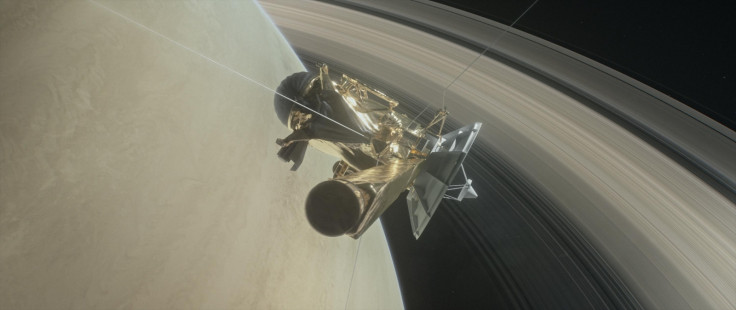Nasa's Cassini spacecraft will plunge into Saturn to prevent humanity destroying alien life
After nearly 20 years in space, the probe is coming to the end of its mission.
In 18 days, Nasa's Cassini spacecraft will plunge itself into Saturn after nearly 20 years in space. Before it runs out of fuel, the $3.36bn probe will intentionally destroy itself to avoid the possibility that it will crash into one of Saturn's many moons, contaminating any life that could conceivably exist.
Cassini's findings have revolutionized our understanding of Saturn, its complex rings and its moons. With its fuel supplies diminishing, Cassini will undertake a number of risky manoeuvres in its last few days, including passes between the edge of Saturn's atmosphere and its inner rings, operations NASA would not have sanctioned earlier in its mission.
"The Cassini mission has been packed full of scientific firsts, and our unique planetary revelations will continue to the very end of the mission as Cassini becomes Saturn's first planetary probe, sampling Saturn's atmosphere up until the last second," said Linda Spilker, Cassini project scientist from Nasa's Jet Propulsion Laboratory in Pasadena, California.
Cassini is expected to lose contact with Earth a couple of minutes before it begins its descent into Saturn's atmosphere. But Nasa hopes that in these final moments important insights will be provided into how the planet formed and evolved.
"We'll be sending data in near real time as we rush headlong into the atmosphere. It's truly a first-of-its-kind event at Saturn."
As well as the risky passes, Cassini has a few tasks to complete in its final days including a flyby of Titan and a picture taking assignment of the Saturn system.
The 'Grand Finale' will bring to an end a 13-year tour of Saturn in which Cassini became the first spacecraft to orbit the planet. Among its many discoveries, we now know for example that the tiny moon Enceladus may be one of the best places to look for life beyond Earth. The mission also involved landing the Huygens probe on the moon Titan, the first time this feat was accomplished in the outer Solar System. Huygens separated from Cassini in 2005.
"The end of Cassini's mission will be a poignant moment, but a fitting and very necessary completion of an astonishing journey," said Earl Maize, Cassini project manager at NASA's Jet Propulsion Laboratory in Pasadena, California.
"The Grand Finale represents the culmination of a seven-year plan to use the spacecraft's remaining resources in the most scientifically productive way possible. By safely disposing of the spacecraft in Saturn's atmosphere, we avoid any possibility Cassini could impact one of Saturn's moons somewhere down the road, keeping them pristine for future exploration."

© Copyright IBTimes 2025. All rights reserved.





















